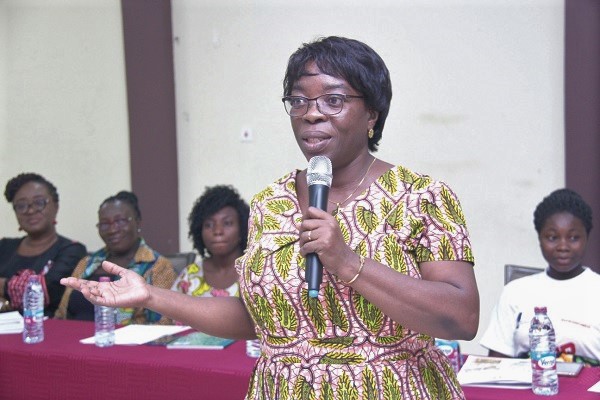The Programme Manager for the Network for Women's Rights in Ghana (NETRIGHT), a women focused non-governmental organisation (NGO), Ms Patricia Blankson Akakpo, has called for the training of more female extension officers in the country in order to enable them to access such services.
According to her, many female farmers, particularly smallholder farmers across the country were unable to access extension services from male extension officers because of some cultural barriers.
She explained that in many areas of the country, married women were not allowed to be seen with men, hence such women farmers could not access extension services from the male-dominated field.
Workshop
Ms Akakpo was speaking in an interview with the Daily Graphic after a day’s sensitisation workshop for some women farmers and women rights organisations in Accra last Friday.
The sensitisation workshop, which brought together 35 participants from the various parts of the country, focused mainly on the passage of the land bill, as well as other pressing issues around the agricultural sector, including government policies on agriculture.
Ms Akakpo said the NGO had trained 15 voluntary female extension officers who were also expected to train others as part of efforts to reach many female farmers with extension services.
She said even though the country had some extension officers, the number of women extension officers among them were very insignificant considering the number of female farmers in the country.
“It is very difficult for the male extension officers to engage the women farmers, so if then we have female extension officers, it is easier for them to support the women farmers,” she explained the rationale for the NGO’s training of voluntary female extension officers.
Land bill
Touching on the land bill, Ms Akakpo, explained that when the land bill was passed, it would ensure gender equity and social inclusion, pointing out that the land bill would also address issues around land registration and transfers among others.
She said if female farmers were not made to understand the content of the land bill and other government policies on agriculture, “they won’t be able to benefit from them.”
According to her, if women were made to understand the essence of the land bill, they would in turn put pressure on their Members of Parliament (MPs) to pass it.
“If they understand the issues well, they will be able to engage their traditional leaders to ensure that some of the inequalities within the land sector are addressed to enhance their work as female farmers,” Ms Akakpo explained further.
Access to land
The Documentation, Monitoring and Evaluation Officer for the Action Aid Ghana’s project dubbed: Promoting Opportunity for Women Empowerment and Rights (POWER), Ms Priscilla Asangalisah, said the sensitisation workshop was meant to assist women to be able to access productive resources such as lands.
“We are either affected by land issues or we are in solidarity with those who are most affected,” she said, stressing that it was important women were made aware of the issues in the land bill to enable them to effectively engage when it came to issues of land in the country.
She was of the view that making women to understand the land bill would empower them to access productive resource, explaining that such understanding would equally help women to secure their lands “and therefore empower our smallholder farmers, especially those who are in the rural areas.”
Ms Asangalisah said demanding access to productive lands for women had become necessary as many women, particularly smallholder farmers in the country, lacked access lands.
She said the passage of the land bill would ensure that women, who formed majority of smallholder farmers in the country, were protected.
She said the POWER project was keen in ensuring that the livelihoods of women across the country were strengthened and improved.

